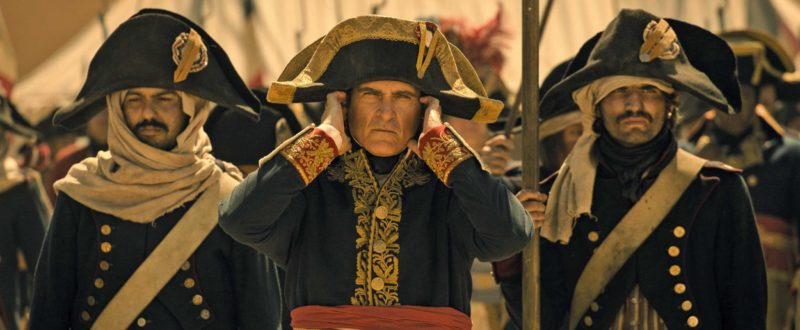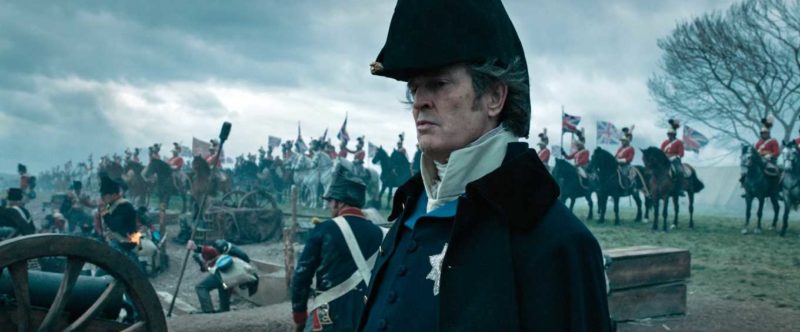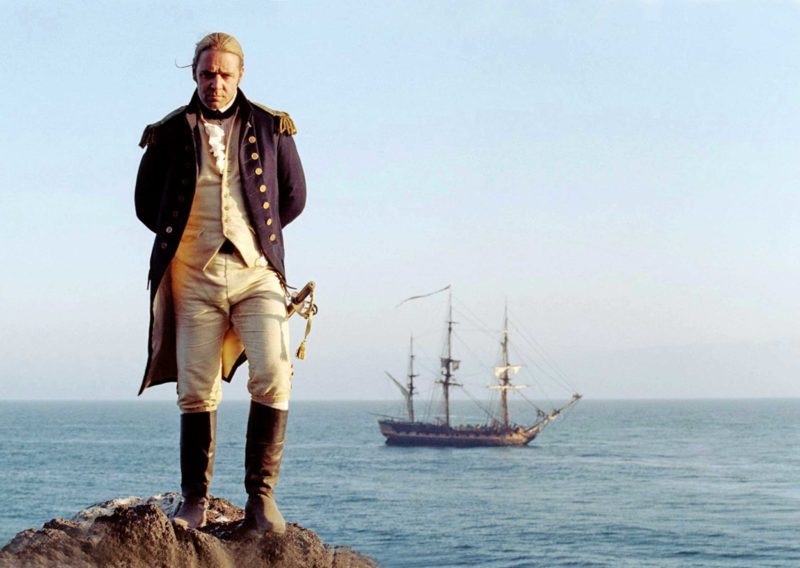
‘Napoleon’ (UK 15, 158 mins) sets out to tell the amazing story of how a Corsican artillery officer became Emperor of the French, but falls flat and is curiously unspectacular despite having Sir Ridley Scott as its director.
For us Britons ‘Boney’ (as we called Napoleon) may have been a villain – for trying to choke our trade and even threatening to invade us – but there’s no doubting the man had huge charisma, and was a military genius that millions of soldiers followed to glory and often death. You wouldn’t follow Napoleon, as depicted by Joachim Phoenix – so brilliant in ‘The Joker’ but here morose and charisma-free – across the street, never mind into battle. And there are many liberties taken with historical accuracy, not just in poor staging of battles – this ain’t no ‘Waterloo’ (1970) in which Rod Steiger gave a passionate portrayal of the spent Napoleon. Battle scenes in that telling of events leading up to and during the Emperor’s final battle, were simply awesome and the period detail impressive. By contrast the clashes in ‘Napoleon’ lack scale and impact. And are just plain wrong. Napoleon did not lead a cavalry charge against the enemy at Waterloo – or anywhere – and the British infantry did not fight from trenches. Nor did light infantrymen with telescopes strapped to their rifles try to assassinate Boney.
THE palette of ‘Napoleon’ is depressingly beige and just plain dull, wasting the glorious colours of the period dress and throwing away a chance to dazzle and entrance with sweeping vistas. Napoleon’s love affair with Josephine is grim and historical movies do, of course, exploit creative licence, so that aspect of ‘Napoleon’ also takes a few liberties. Scott’s last Napoleonic Wars movie was his first silver screen effort, ‘The Duellists’ (1977), a sublime, sometimes brutal, but frequently dazzling, story of two French cavalrymen locked in mortal combat across 20 years (and based on a Joseph Conrad short story). If only ‘Napoleon’ could have been half as good, or even try for the heights of Scott’s ‘Kingdom of Heaven’ (Director’s Cut, 2005), a stunning triumph about medieval love and war in the Holy Land.
‘NAPOLEON’ was unleashed on the world at the same time as the 20th anniversary of a truly splendid epic of the Napoleonic Wars celebrated its 20th anniversary, causing sad reflection among its legions of fans that a sequel was never commissioned.


We are talking ‘Master and Commander’, starring Russell Crowe as Jack Aubrey, captain of the Royal Navy frigate HMS Surprise in pursuit of the dastardly French privateer Acheron in seas off South America. Directed by Peter Weir, it remains a flawless, thrillingly absorbing piece of movie-making with real heart and soul.
Blessed with a brilliant script, perfect casting across the board, it also achieved peerless period detail. The source work for ‘Master and Commander’ was three of Patrick O’Brian’s novels about the rambunctious naval career of ‘Lucky Jack’ Aubrey and his scientist-spy sidekick Stephen Maturin (played in the movie by Paul Bettany). O’Brian famously based his novels on real-life sea dogs of Britain’s Georgian navy and their exploits, such as the heroic, if deeply flawed, Lord Cochrane (whom Napoleon called ‘The Sea Wolf’). Ridley Scott on the other hand was brutally dismissive of using books as the basis for his story and it shows. His rationale was that those who wrote most of them were not there at the time, so how would they know what really happened? The curious thing about ‘Napoleon’ is that you almost sense Ridley Scott might have been happier filming a sort of ‘Master and Commander’ sequel showing how the Royal Navy’s control of the oceans frustrated Boney.

FOR all the flaws of ‘Napoleon’, Scott remains one of the greatest movie directors of all time. And he excels when he narrows the focus down to a tight cast, an idiosyncratic world, sort of like you find in a spaceship or a warship. A striking scene in ‘Napoleon’ was filmed aboard HMS Victory, in the Admiral’s Cabin – a fictitious encounter between Wellington (Rupert Everett) and the post-Waterloo Bonaparte. In an earlier scene ashore Napoleon rages at a British diplomat: ‘You think you’re so tough because you have boats!’ By that he means a massive navy that controlled the oceans and largely confined him to the Continent.

That scene is actually close to reality, for, apparently, Ridley Scott did sit down with some proper Napoleon experts prior to filming and ask them about the Emperor’s life and deeds. One of them related the real event that inspired the ‘boats’ scene. Somehow I think that Jack Aubrey would like to have a word with Boney and tell him that vessels such as HMS Surprise and HMS Victory are not ‘boats.’ They are ships of war.


Comments
Sorry, comments are closed for this item